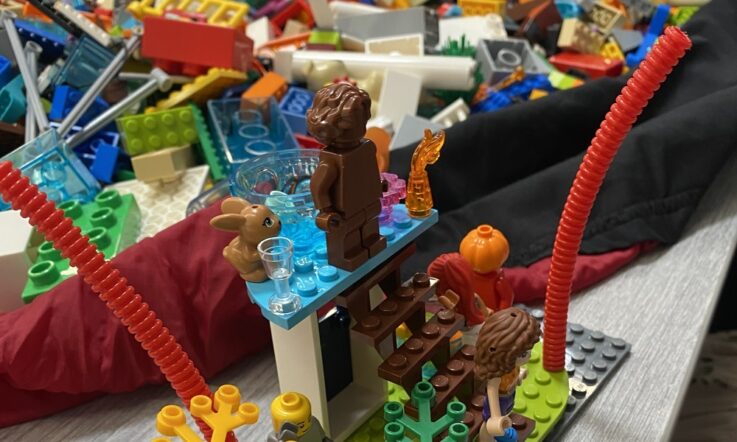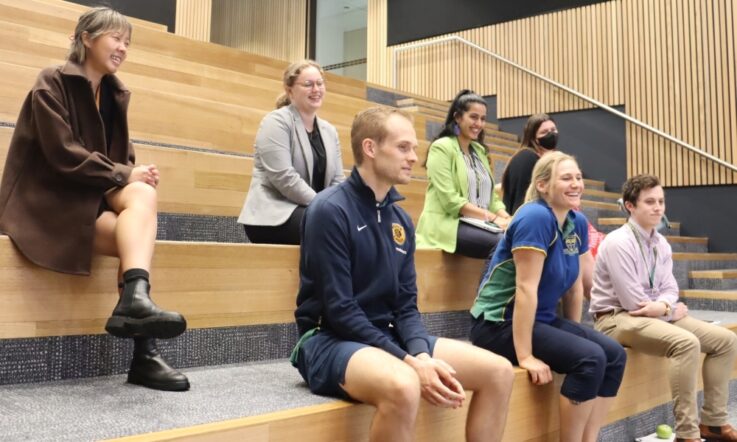Researchers from the University of York are hoping to address teacher shortages in the UK with their project aimed at recruiting new teacher graduates to the profession using online games. The 3-year project also aims to build a better understanding of what might attract STEM undergraduates to teaching.
Robert Klassen is Professor and Chair at the University of York Psychology in Education Research Centre and the lead researcher on this project. He says that research team is focused on finding people using the person-environment (and person-vocation) fit theory.
‘Our goal is to improve the teacher workforce and so right now one of the crucial issues is making sure we increase the flow of people coming into the profession,’ he tells Teacher.
The researchers hope to address initial teacher training figures that show that under 29,000 graduates signed up to study teaching in 2022/2023, which is 20% less than the previous year (UK Government, 2022). The figures also show that the government missed its own recruitment target by more than 80% in key subjects such as Physics, with just 444 Physics teachers signed up for training, equating to one for every 8 state secondary schools (Adams, 2022).
Rebecca Snell is an Education Consultant at the University of York and a former secondary school teacher. She says it’s very difficult to get people into teacher training.
‘I mean we’re 83% below target for Physics teachers this year and we’ve reduced the Maths target by 39% and yet even for the last 12 years we still haven’t managed to recruit people. It’s just trying to work out, why is that happening and what can we do?’
The 3 stages of the project
Sophie Thompson-Lee is a Postdoctoral Researcher at the University of York and she says the first part of the 3-stage project involves looking at messaging about teaching as a career, to see which types of messages are most persuasive.
‘At the moment, we’re developing a study where we’re going to show STEM undergraduates and also high school students messages that relate to different elements of teaching as a career (so, things like job benefit, salary, effect on society, working with children), as well as the different sorts of personalities or skills that you might want for teaching (so, things like communication or organisation).
‘We’re going to show them scenarios that talk about them as a teacher in these different situations. So the very first study is to look at these messages and find out what motivates people to come to teaching as a career.’
From there, the researchers will use the findings to develop a recruitment game incorporating some of the messages and scenarios to immerse people in teaching and encourage them to pursue it as a career. The third stage involves testing the game against other types of methodology which are already being used to encourage people into careers, like offering bursaries and stipends to study.
Thompson-Lee says it’s interesting to be doing this study in the current financial context in the UK, where there’s a cost of living crisis and people seem to be more aware of things like salary and job benefits. ‘So, previously it’s been found that most teachers are motivated by social benefits but it will be interesting to see if that’s still the case in the current set of undergraduates when they’re being bombarded with so much messaging in the press about living expenses as well.’
The design of the persuasive game
The game itself will be aimed at undergraduates and senior secondary school students, and designed in a way that ensures it’s easy to play but serious in its intent and purpose. ‘We want them to encounter this game, play it and to raise their awareness and interest in the profession,’ Klassen says.
‘We’ve got a few different design features that we’re testing in the games team, so we have game designers, software developer and other “games people” who are working on this. So the exact style of it, we’re just this week playing around with a few different ideas about what it will look like and how it will be played, how long it will take and whether it can be replayed and should be replayed.’
Snell says they’re looking at the extent to which the game will be utterly immersive, whether they’ll design semi-catastrophes into it, and how the narrative will progress.
‘We’re looking at different imagery and to what extent it should be a more fantasy game, that’s sort of Japanese sort of style, or whether or not it’s going to be more realistic,’ she adds.
Klassen says that the messaging to come from the first stage of the project will inform the final game. ‘We’re thinking of maybe a branching scenario where somebody enters the game and starts playing and then at the very start we ask about motivations. And then they can go down a route where they’re motivated by social utility like doing good in the world, or perhaps they’re motivated by other things like love of their subject or interest in working in schools in other ways, and so on,’ he shares.
‘We’re hoping that those messages from our first study will be embedded in the actual game. The game developers’ job is to make it interesting and not lame, because for undergraduates to actually play, or A-level students, it can’t be really lame and so we’re wanting to make sure it’s fun and interesting and also impactful…’
Finding the right people for the job
Klassen say the team has presented this work to people who work in schools and while their response was overall quite positive, they did have some concerns.
‘One caveat was – listen there are very real problems in schools right now and you can’t just manipulate people into applying to become teachers because these other problems need to be addressed, and we’re aware of that.
‘We think there are systemic issues in education in the UK and other countries, but still we want to identify and raise the awareness of the positives of teaching. At the same time, we’re pushing the government to improve in lots of different ways. Working conditions are really tough right now and that’s not sustainable if we want to draw the right people into the profession.’
He says that beyond attracting people to the profession, keeping them in their jobs is another challenge.
‘Retention is a big thing, but our working hypothesis is that instead of putting out messages of social utility like “oh look, it’s such a wonderful way to influence the lives of children”, if we focus more on person-environment or person-vocation fit we can really effect the retention of teachers if their fit is better with the profession, rather than just sending persuasive messages about the joys of improving the lives of children.’
Thompson-Lee says that despite all of the negative rhetoric around the profession, teaching can obviously be a really fulfilling job. She hopes that the game will show candidates that their personal skills and attributes would make them well-suited to a career in teaching.
‘It will show people that their personality and the skills that they have, aside from what they chose to do in their degree, that the reason that maybe they chose their degree in the first place was something to do with their values and their personality and their skillset and that would fit teaching,’ she says.
Snell says it’s important to connect and communicate with people as individuals. ‘At the moment it feels relatively one-size-fits-all and we’re really hoping that this game offers people that opportunity to really engage with it. And rather than just having it told to you, actually being there and being able to interact with it as a career, as an idea, as a possibility, and I think it is so important, helping people to realise what actually motivates them.’
While this technology will be rolled out across England, Klassen says that it may be helpful in addressing the teacher recruitment issues in Australia too.
‘This kind of technology is something that can raise awareness for people teaching and leading in hard-to-staff areas, especially in New South Wales and Queensland. There’s a couple of discussions going on your side of the world as well,’ he adds.
References
Adams, R. (2022, December 2). Number of graduates in teacher training in England at ‘catastrophic’ level. The Guardian. https://www.theguardian.com/education/2022/dec/01/number-graduates-teacher-training-england-catastrophic-level
UK Government. (2022, December 1). Initial Teacher Training Census, Academic year 2022/23. Explore Education Statistics. Retrieved April 5, 2023, from https://explore-education-statistics.service.gov.uk/find-statistics/initial-teacher-training-census/2022-23
Klassen, R. M., Granger, H., & Bardach, L. (2022). Attracting prospective STEM teachers using realistic job previews: A mixed methods study. European Journal of Teacher Education, 1-23.
In a competitive recruitment market, demand for teachers is high. Australian school leaders can cast their net wider by promoting vacancies on Teacher Jobs. Post your job for as little as $100+GST*, per listing per month, or you can opt for our Jobs Package to get 5 listings for the price of 4 and use the credits when you like. Choose added exposure in the Teacher bulletin at checkout and promote your job ad to our subscribers.
What inspired you to become a teacher? What do you think could be done to attract more young people to the teaching profession?
Think about your own experiences working with pre-service or early career teachers. What kinds of questions do they ask about the profession and how do you respond? Do you think this influences their perception of the profession?



